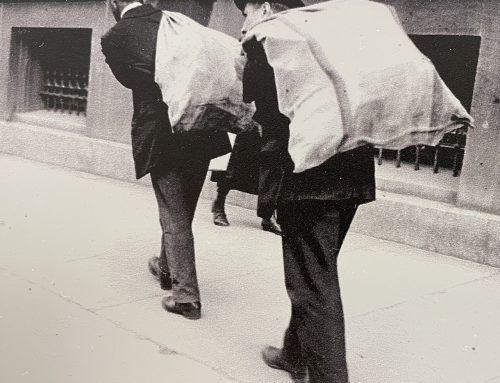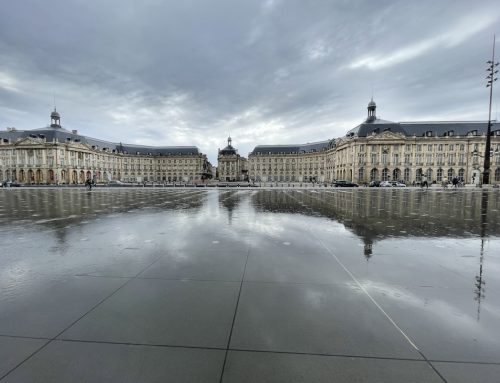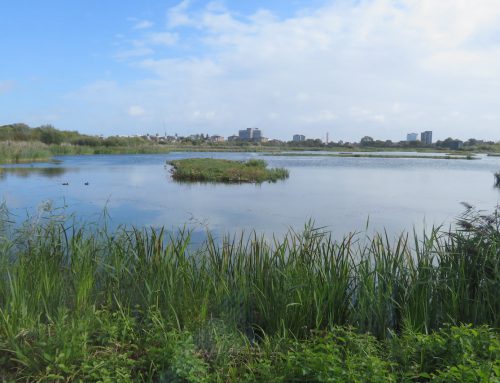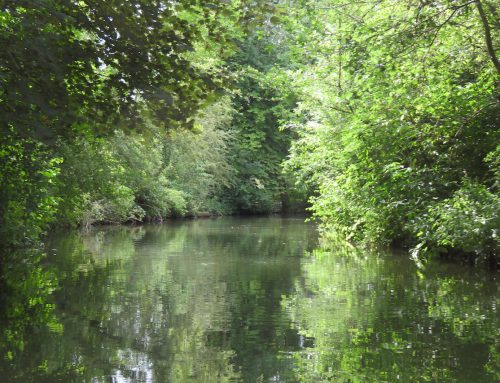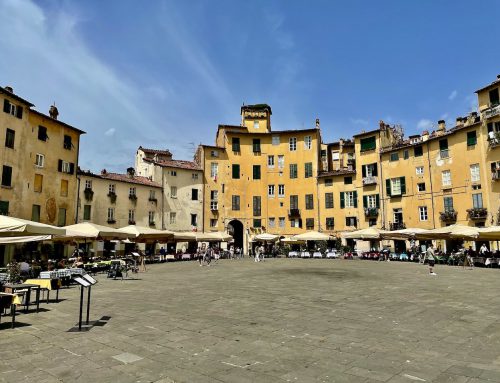The five-euro dash
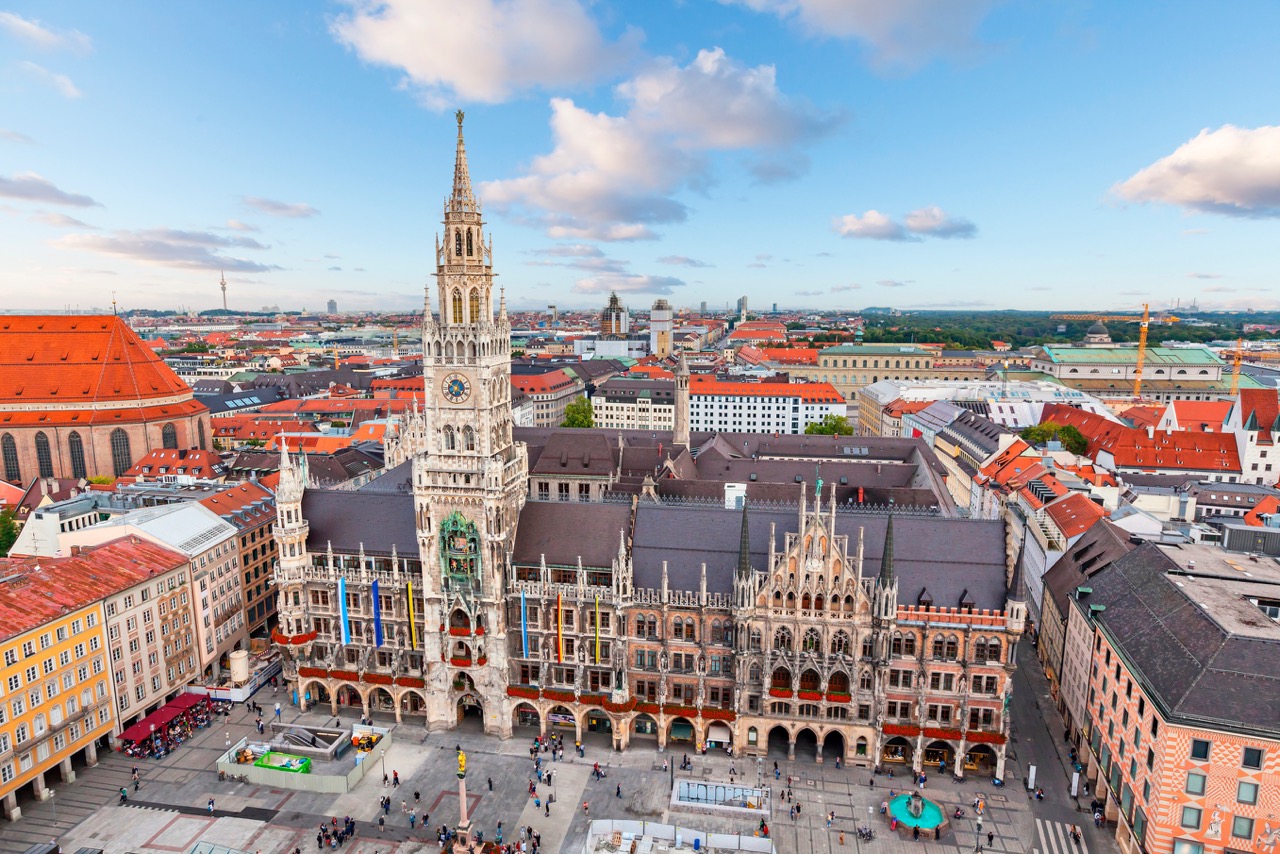
Munich as it was and might be.

Munich as it was and might be.
Munich, Germany
How Munich has changed and in less than two years. This normally structured and organised city has become…what is the correct word? I know, I will call it haphazard. I am here on a biannual pilgrimage, well almost a pilgrimage, a professional course with my name attached that I have helped run for more than a decade. And apart from so long an association reminding me that the ageing process is something from which none of us escapes, Munich has always been refreshing, inviting, civilised, rejuvenating and fun. But now? Well now there is something in the air and that something is not all good.
It may be to do with railway stations as so often the sleeping quarters for professionals like me are near airports, railway stations or both. This lot have stuck me on the sixth floor of Le Meridien and as I look through the tiny gap in my net curtains, the Hauptbahnhof - Munich’s central station - is all I see. Way below me on the pavement the streets are filled with a humanity that Munich once never knew existed. Now this city, the third largest in Germany and the capital of Bavaria itself, realises there is no escape.
I walked through the city centre earlier. Instantly, I could feel the tension, sense it, almost smell the strain. The population of Munich has exploded. For many years Germany, Munich in particular, has been home to the second largest Turkish population on the planet outside Turkey itself. The Turks laugh when they say there are 53 cities in Turkey, the 53rd being Munich. But these days it is more than just Turkey. The population of Munich is rising fast thanks to predominant additions from Afghanistan and Syria supplemented by lesser numbers from Eritrea, Somalia and Iraq.
During my short walk, undertaken largely to clear my head of jet lag, I passed perhaps 300 people, each busying this way and that. Not once did I hear German spoken. The language is not my strong point anyway, but even I recognise danke, bitte and schön without too much trouble. Strange, I thought, with German being the most commonly spoken native language in the European Union and the first language of more than 95 million people worldwide. Did you know that one in ten of all books published on the planet is in German? Until my visit to Munich I had not the least idea.
But two tongues stood out as I casually wandered towards the nearby shopping centre; at least I tried to look casual in an attempt to avoid attracting too many stares. I heard Turkish for sure. I tried learning it once, failed miserably, and can now only recall how to say “Ahmed went to Ankara by train yesterday,” not an especially helpful phrase when ordering a kebab from a street kiosk. But Arabic was the other. Lots of it. There was more Arabic on the streets of Munich than I might hear in Dubai, Muscat or Cairo. The Middle East has arrived in Germany and Munich is manifestly a favoured spot.
There were beggars, too. Plenty. I counted 23 on my 200-metre wander. Amputees, children, crutches by the zillion, and women in full niqab waving an empty cardboard coffee cup in my direction as they pleaded for support. One sad-looking fellow, perhaps in his mid-thirties had clearly given up and sat motionless on the pavement, back against a dirty wall, a felt-tipped sign around his neck declaring “Hilfe” (Help); the poor guy was hungry. The Arab Spring, the refugee world, fundamentalism, war conflict and misery, have set up shop on Munich’s streets and this wonderful city’s character is changing irreversibly as a consequence.
There are shady characters, too. Why is it that such people favour small groupings of threes and fours, always on street corners and never on the main street itself? Perhaps the corner allows them to see both ways, a form of early-warning mechanism. Hands in pockets, an obligatory leather-effect bomber jacket, and a gaze that pretends to look downwards at the pavement but whose eyes are in reality flashing this way and that. Most seem to smoke, a few do not. I saw one dragging purposefully on an e-cigarette. Healthy perhaps but definitely not macho. Yet for sure these characters are on the lookout for something, I just wish I knew what; but central Munich has plenty of shadiness, an air of uneasiness, and rough-looking characters to boot. It is no longer a place to walk happily at night, no longer a city to make a mobile telephone call in full public view. It is certainly no longer somewhere to allow your nearest and dearest to wander without company.
In public my German colleagues, all fine friends I have known for years, reassure me that the new arrivals from far-flung lands are welcome, and if it were not for Germany they would have nowhere to go. Of the 1.1 million refugees who entered the country in 2015 alone, 71,000 ended up in Munich, a city with a population of only 1.4 million. But in private the German view is different. They blame politicians, they dislike what they see, and bemoan the fact that even a native German cannot go out at night, or allow a less resilient family member to go on the streets at all. There is danger out there. I felt it and they feel it, too. Yet this is not a topic about which locals talk freely, especially if they have an official connection. State employees have been told not to discuss the matter for fear of alarming the public. Alarm is a good description. Migrants are, they say, being recruited as drug couriers, petty thieves and middlemen for stolen goods. Mobile telephones are a hot favourite, especially designs that can be sold on to other refugees. The mobile phone is as widespread in Germany as anywhere else on the globe but beware should you use one in public.
But escape the city centre, those few streets that surround the central station, and the old Munich begins to reappear. Actually old Munich might be the wrong description. Yes, the city was founded by Benedictine monks in the 12th century and is certainly old - it was called Munichen (“by the monks”) at the time - but the place took such a hammering in the Second World War that 50% of the entire city was levelled, as well as 90% of its historic centre. There are plenty of modern buildings as a result. As I explored further, I could see the huge tents from the Oktoberfest still standing, although soon to be packed out of sight for another year. Munich has hosted the event since 1810. It lasts 16 days and a frightening 7 million litres of beer and 95,000 litres of wine are served during this period. And what is it about Germany and sausages? At the last festival more than 280,000 of the things were eaten. Sausages I mean, not Germans. Meanwhile around the remaining tents, and scattered in the thinning trees and hedges, lay the discarded debris from the 7.2 million revellers who had occupied central Munich a few days earlier. That is a lot of people, a lot of food and a lot of booze.
Munich has plenty of construction, too. Road barriers, crash barriers, people barriers, everything else barriers. The German nation appears to enjoy compartmentalisation and making folk behave. They dislike breaking society’s rules. But maybe they have an uphill task when it comes to Middle Eastern refugees. Yet despite the flood of peoples from lands where rule-breaking is a way of life, some discipline clearly remains in Munich. Pedestrians still hover by the pavement edge ready to cross the road but will not shift a muscle until the little red man on the far side of an often empty thoroughfare turns a shade of lurid green.
Jay walk in Munich? Not a hope. Be prepared to be summoned by a well-fed, baton-carrying uniform if you do. It is illegal to cross the road at anything other than a dedicated spot and will cost you a €5 fine should you try. That doubles to a shattering €10 if your misdemeanour causes an accident. Strange for a land with a higher rate of road fatalities than our own. Germany kills 4.3/100,000 population on its roads, while in UK we can be proud at 2.9. Unless you are one of the 2.9. Mind you, both our countries pale when stood alongside Libya, the most dangerous place in the universe, with a death rate on the roads a horrifying 73.4.
For me the decision is clear. I have never been good at obeying orders. At the pavement margin I look left and right, antennae wiggling, as I keep my eyes open for cars, policemen, cyclists and wayward refugees. When the way is clear, off I go, heart in mouth and hope eternal - the €5 dash is for me.
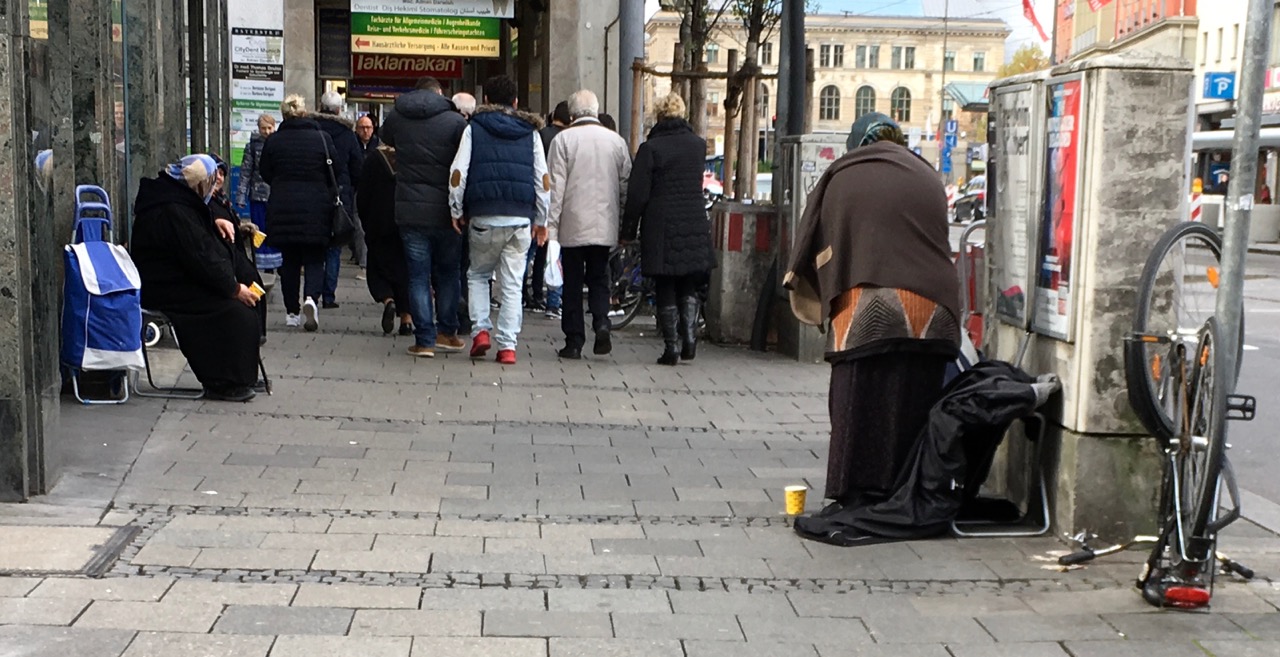
Cardboard cups at the ready, begging is about to begin.
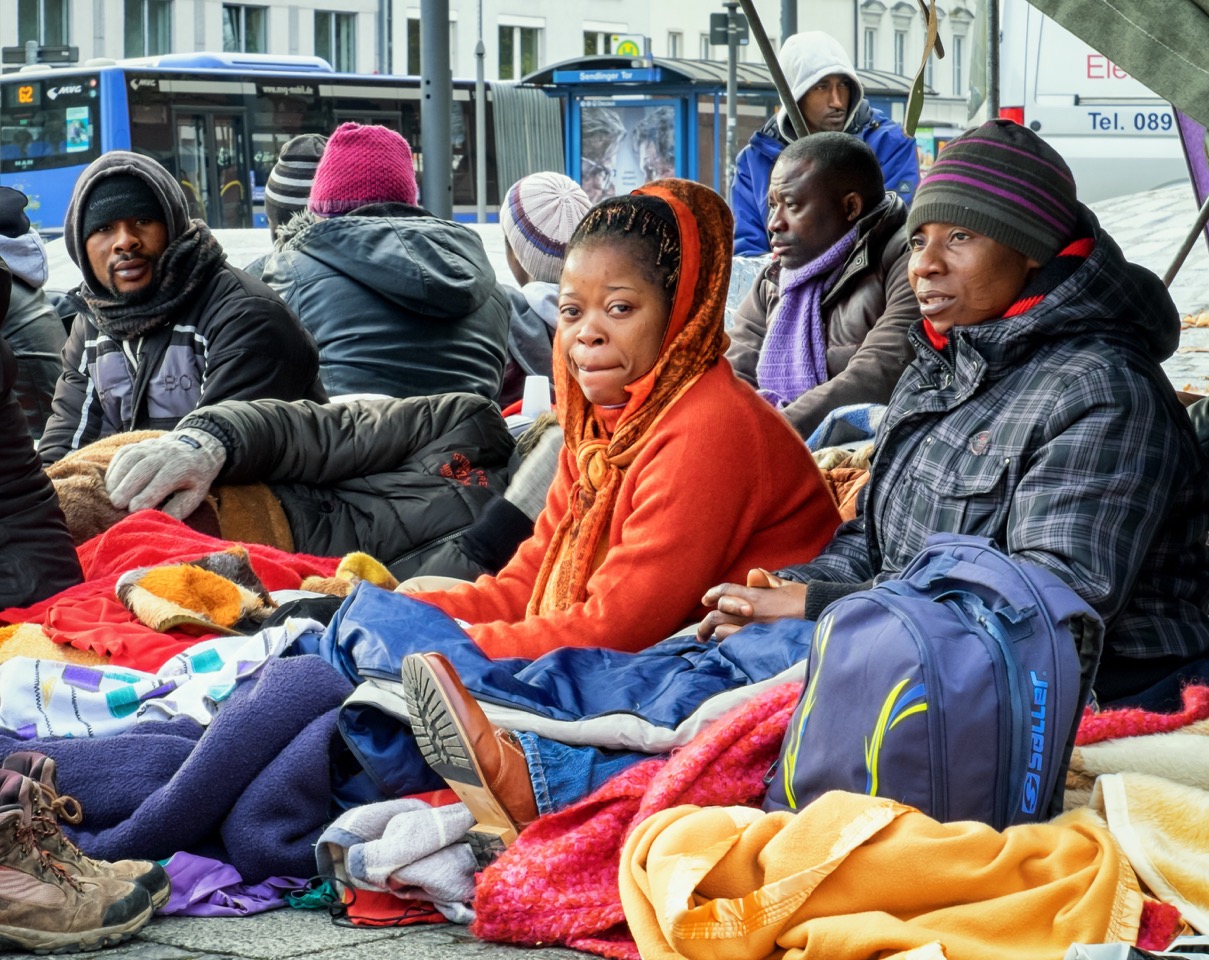
Modern Munich - refugees on hunger strike.
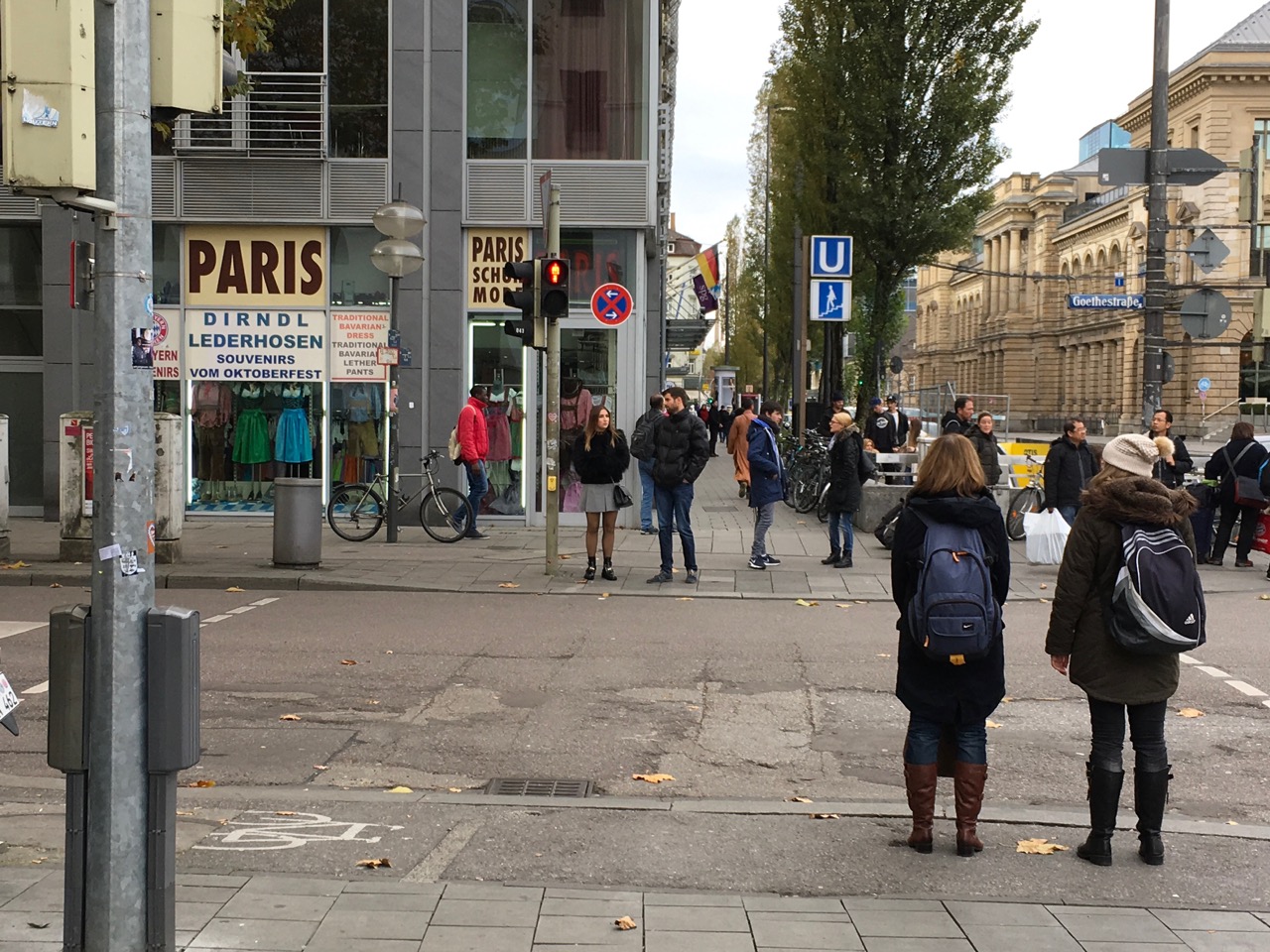
Empty road, little red man and nobody, nobody dares move.

